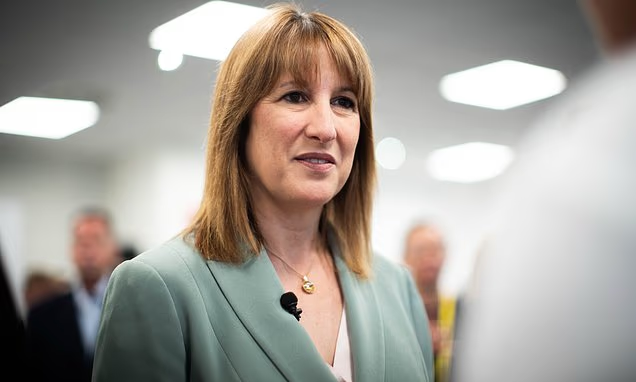Reeves Tax Policies Could Push UK Unemployment to Five-Year High
Britain’s job market faces further strain as economists warn that rising business taxes and weak economic growth could push unemployment to its highest level in half a decade. According to KPMG, the unemployment rate is expected to reach 4.9% in 2026, a level last seen in 2021 when the economy was reeling from the impact of lockdowns. The projection comes amid criticism of Chancellor Rachel Reeves’ £40bn package of tax increases, which businesses say is stifling investment and hiring.
KPMG’s analysis suggests that labour market conditions will deteriorate further before stabilising, as job vacancies continue to fall and companies tighten budgets. At the same time, concerns are mounting that Reeves will be forced to implement another wave of tax increases to address a growing shortfall in public finances. Economists warn that these pressures could deepen the economic slowdown and prolong hiring freezes.
KPMG Forecasts Rising Joblessness
KPMG estimates that the unemployment rate will climb from the current 4.6% to 4.9% by 2026, marking the highest level since 2021. This rise comes as job vacancies shrink across key sectors and businesses prepare for additional tax burdens.
“The labour market is unlikely to see a reversal in fortune in the near term,” KPMG analysts said, warning that firms are cutting back on recruitment as they brace for higher costs. Growth forecasts also remain weak, with GDP expansion expected to slow in the next two years.
Reeves’ £40bn Tax Rises Under Scrutiny
In her Autumn Budget on 30 October 2024, Reeves unveiled £40bn in tax increases, including a 1.2 percentage point hike in employer National Insurance contributions. The move, described by critics as a “jobs tax,” has been linked to mounting job losses, with economists noting that the labour market has weakened at its fastest rate since the 2009 financial crisis.
Reeves has defended her policies as necessary to stabilise public finances and protect working people by avoiding rises in income tax, VAT, or employee NI contributions. However, the scale of the tax burden has drawn criticism from business groups and opposition politicians.
Speculation Over Further Tax Measures
Despite assurances, speculation continues that Reeves may need to find tens of billions more to plug the gap in the nation’s finances. Some forecasts suggest the shortfall could be as high as £50bn, though this figure remains unverified.
Possible options being discussed by economists include freezes to income tax thresholds, wealth taxes, and reforms to property levies. While these measures could raise additional revenue, they risk further damaging business confidence and household spending.

Opposition Pressure Mounts
Opposition figures have accused Reeves of mishandling the economy. Shadow Chancellor Mel Stride has been particularly critical, warning that Labour’s approach risks saddling the country with more debt and fewer jobs. While some of his quoted remarks remain unverified, his broader criticisms align with ongoing political attacks on Labour’s fiscal strategy.
Reeves, meanwhile, continues to reject claims that her plans leave a £50bn gap in public finances. She insists that Labour’s policies will protect working households while restoring stability after years of economic turbulence.
Business Concerns and Hiring Slowdown
Employers remain cautious as the Autumn Budget approaches. KPMG reports that many businesses are postponing recruitment and scaling back investment due to uncertainty over future tax changes. This slowdown is expected to contribute to weaker growth, with GDP expansion projected to hover just above 1% in the coming years.
The labour market faces further headwinds from declining productivity and tighter financial conditions, heightening concerns about job security for workers across the country.
The Road Ahead
The government faces a balancing act between maintaining fiscal credibility and avoiding policies that could choke off growth. Reeves has pledged not to raise income tax, VAT, or employee National Insurance, but her options for raising revenue remain limited.
Economists caution that while higher taxes may provide short-term relief for the Treasury, they risk long-term harm to the jobs market and investment climate. The coming months will be critical in determining whether the Chancellor can steer Britain through this economic turbulence without triggering a deeper downturn.

Final Summary
The UK economy is navigating a fragile recovery, and Reeves’ fiscal choices have put her at the centre of political and economic debate. KPMG’s warning that unemployment could climb to 4.9% underscores the risks of continued reliance on business tax hikes to balance the books.
While the Chancellor maintains that working households will be shielded, her critics argue that her approach risks stalling growth and fuelling job losses. With the Autumn Budget looming, the country faces difficult choices over how to restore stability without undermining employment.
Amidst this uncertainty, everyday people are also looking for ways to take control of their own finances. That’s where the Pie app comes in. Designed to take the stress and confusion out of taxes, Pie gives you a clear view of your tax bill, income and projections in real-time like an accountant in your pocket.
Whether you’re PAYE, self-employed or juggling multiple income streams, Pie helps you claim what’s yours, stay compliant, and plan with confidence. Because when the economy feels unpredictable, it’s more important than ever to feel in control of your money.











